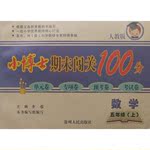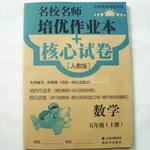题目内容
根据短文内容,从短文后的选项中选出能填入空白处的最佳选项。选项中有两项为多余选项。
Conquering Procrastination (拖延症)
Procrastination, the habit of putting tasks off to the last possible minute, can be a major problem in both your career and your personal life. 1. . Therefore, it takes deliberate strategies to avoid becoming our own worst enemy by procrastinating on our intended actions.
Don’t give in to feeling good. 2. . For example, a task at hand makes us feel anxious or overwhelmed, so we give in to feeling good, seeking immediate emotional relief, and we walk away, leaving the task for tomorrow. To cope with this, stay for a minute — don’t walk away. Acknowledge the negative emotions, but get started anyway. Progress on a goal provides the motivation for another step forward.
3. . We’re most likely to procrastinate on tasks that lack structure. This means that in addition to making your task specific, it’s important to reduce the uncertainty about how to continue — and, when it’s time to act, to reduce available distractions (分心的事物) as well. Shut off your e-mail, separate yourself from others as much as you can, and make sure the environment around you is working to strengthen your willpower and focus, not to weaken your efforts.
Make the most of the willpower muscle. A great deal of recent research clearly indicates that willpower is like a muscle. You can exhaust it more quickly than you might imagine and, when you do, you lose your ability to self-regulate your behavior. One immediate method to strengthen your resolve in order to keep you on task is to remind yourself of your values. 4. .
Beating procrastination isn’t rocket science, but it is psychology. Procrastinators can change their behavior — but doing so consumes a lot of mental energy. 5. . It can be done with highly organized cognitive (认知的) behavior treatment.
A. Its side effects include losing opportunities, rushed work, stress, anger, and guilt.
B. Do not perform several tasks at a time.
C. This process of self-recognition strengthens our weakening willpower.
D. When self-regulation fails, it’s often because short-term emotional repair comes before our long-term goals.
E. And it doesn’t necessarily mean one feels transformed internally.
F. It means doing more enjoyable things in place of less enjoyable ones.
G. Reduce uncertainty and distractions.
 小博士期末闯关100分系列答案
小博士期末闯关100分系列答案 名校名师培优作业本加核心试卷系列答案
名校名师培优作业本加核心试卷系列答案书面表达
高中生考入大学后,是否要立即为其配备笔记本电脑呢?对此,有人赞同,有人反对。请你根据下列表格的内容写一篇英语短文,并发表你的看法。
支持者 | 反对者 |
1. 是对子女奋发努力取得好成绩的肯定和奖励 2. 方便今后的学习,随时随地地可以上网查阅资料 | 1. 给有些家庭增加了经济负担 2. 大学学习条件比较优越,有足够的计算机房供学生使用 |
你的看法(至少两点)…… |
注意:1. 对所给要点逐一陈述并适当发挥,不要简单翻译。
2.词数100左右,开头已经给出,不计入总词数。
Is it necessary for freshmen to have a laptop when they go to university? Different people have different ideas.

